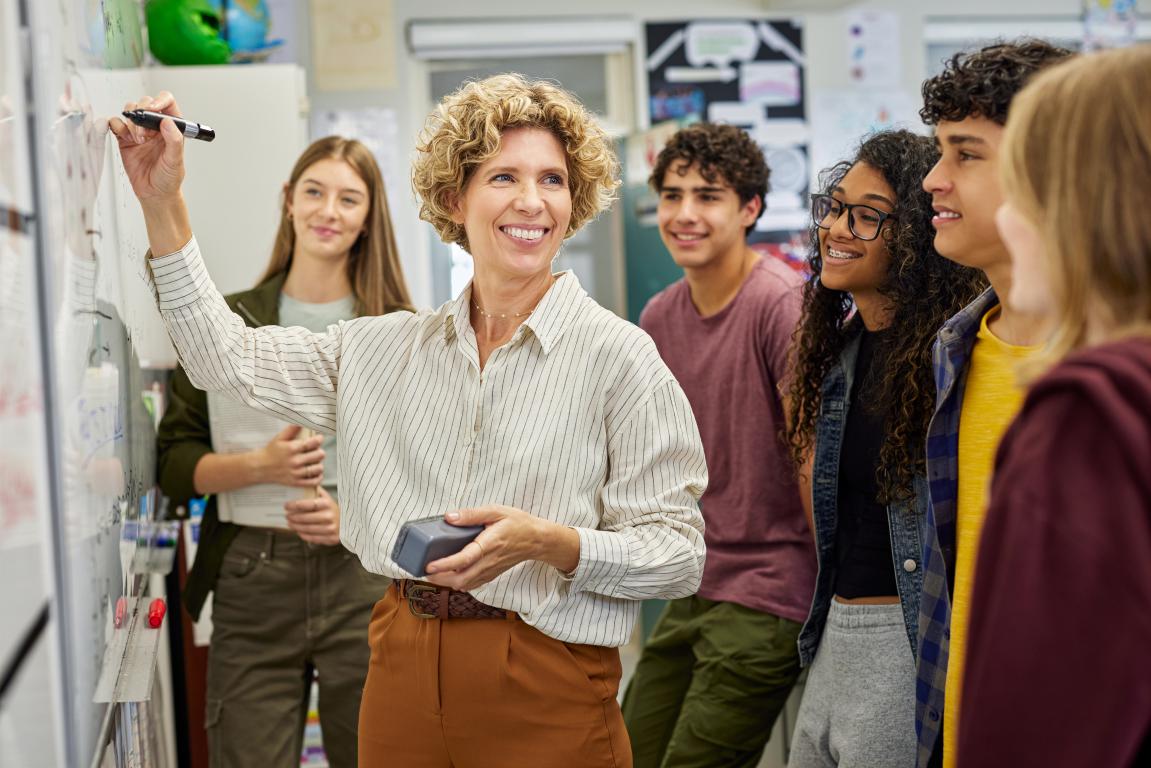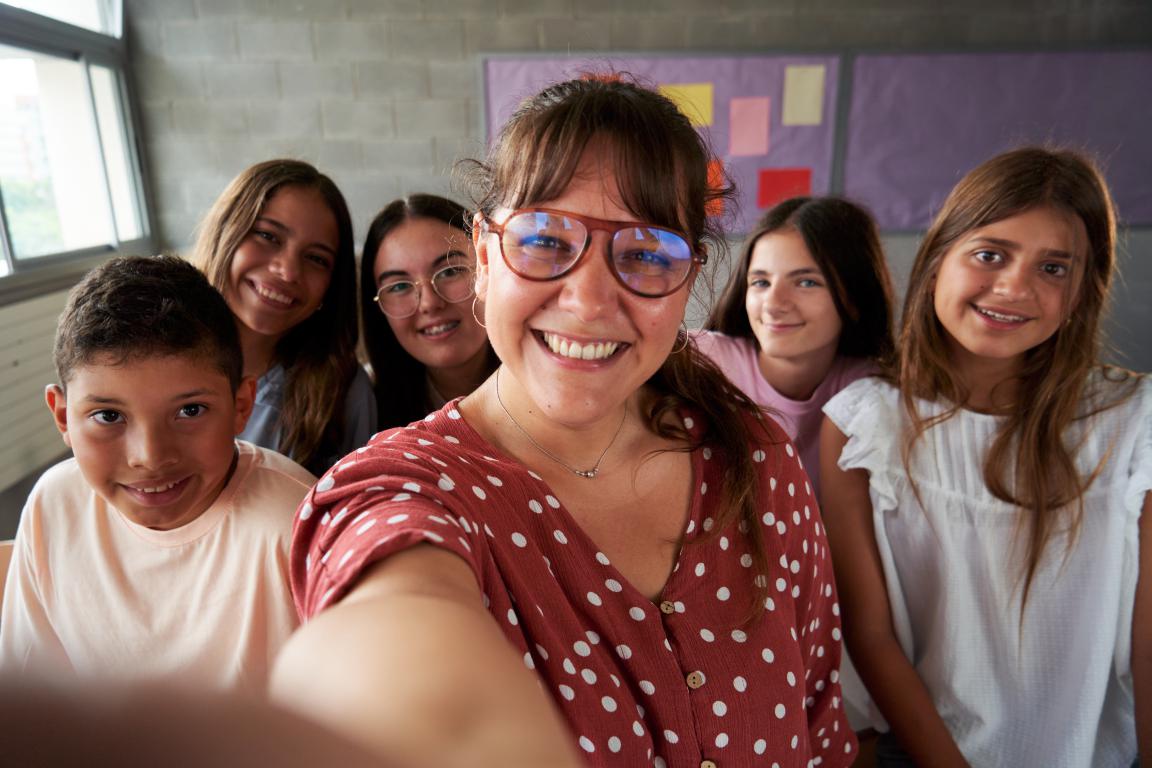Teaching ID Cards Essential for Teachers Teaching Assistants and Home School Educators
The Essential Guide to Teaching ID Cards
In schools, every educational role comes with its own responsibilities. Teachers manage lessons and classrooms, teaching assistants support learning and care, and home school educators juggle a range of administrative and teaching tasks. Knowing who is responsible for what helps schools run smoothly—and clear identification is a key part of that.
Teaching ID cards aren’t just a name badge. They can:
-
Help staff manage routines: Cards make it easy for students, colleagues, and visitors to know who is responsible for different classes, year groups, or activities.
-
Support safeguarding: ID cards make it simple to identify authorised staff, visitors, and volunteers, helping schools meet UK safeguarding requirements.
-
Assist in daily logistics: From staff room access to classroom rotations or off-site trips, ID cards provide a simple way to track who should be where.
At The Card Project UK, we provide biodegradable, durable ID cards designed to meet the everyday demands of schools. They are practical tools that make life easier for educators, keep schools organised, and help maintain a safe environment for students.
Teachers: The Core of the Classroom
Teachers are at the centre of learning, responsible for guiding students through both academic and personal development. Their work goes beyond delivering lessons; it shapes how students engage with learning and develop life skills.
What teachers do
-
Plan and organise lessons: Teachers spend time preparing lessons that match the UK curriculum, ensuring activities are structured, age-appropriate, and engaging for all students. They also organise timetables, classroom resources, and teaching materials.
-
Adapt teaching to students’ needs: Every classroom has a range of learning styles and abilities. Teachers adjust their methods using visual aids, practical activities, group work, or technology so every student can understand and participate.
-
Assess progress: Teachers track student learning through tests, assignments, projects, and class participation. This feedback helps them identify areas where students need extra support or can be challenged further.
Daily responsibilities
-
Preparation and grading: Beyond lessons, teachers prepare materials, mark work, and provide feedback, helping students understand their progress and next steps.
-
Support and intervention: Teachers spot when students are struggling academically or emotionally and provide targeted support, such as one-to-one help or small group sessions.
-
Communication with parents: Regular updates, meetings, and reports keep parents informed about their child’s progress and any areas needing attention, helping create a partnership between home and school.
The impact of teachers
-
Academic development: Teachers equip students with the knowledge and skills they need for exams, further education, and future careers.
-
Critical thinking and creativity: Through problem-solving, discussion, and exploration, teachers encourage curiosity and independent thought.
-
Social and emotional skills: Teachers help students develop teamwork, resilience, empathy, and confidence in a safe and inclusive classroom environment.
-
Inspiring curiosity: Engaging lessons and a teacher’s passion for their subject can spark a lifelong love of learning, encouraging students to explore ideas beyond the classroom.
Teachers shape more than grades—they help students grow as individuals, preparing them for life inside and outside school. Proper identification with a clear ID card supports teachers in managing these responsibilities efficiently, safely, and professionally.
Teaching Assistants: Supporting Individual Growth
Teaching assistants (TAs) play a key role in making classrooms run smoothly and supporting every student’s learning. Their work goes beyond helping teachers—they make learning accessible and inclusive for all students.
What teaching assistants do
-
Collaborate with teachers: TAs work closely with teachers to understand lesson plans and curriculum goals. This lets them provide targeted support where it’s needed most.
-
Provide extra help for students: They support students with learning difficulties, special educational needs, or language challenges, ensuring every child can engage with lessons.
-
Adapt lessons and resources: TAs help modify materials or approaches to match different learning styles, making lessons more effective for individual needs.
Daily responsibilities
-
Small group and one-to-one sessions: TAs often run focused sessions to reinforce learning, offer remedial support, or extend advanced students’ understanding.
-
Classroom management support: They help organise the classroom, manage behaviour, and maintain a calm, productive environment.
-
Preparing and adapting resources: TAs create visual aids, adjust materials, or organise activity resources, helping lessons run efficiently and stay engaging for all students.
The impact of teaching assistants
-
Boosting student achievement: Focused support from TAs can improve outcomes, particularly for students who need extra help.
-
Supporting inclusion: TAs make it possible for students with special educational needs to participate fully in mainstream lessons, promoting diversity and equality.
-
Building strong relationships: Many students turn to TAs for guidance and reassurance, which helps create a trusting and nurturing classroom environment.
-
Reducing teacher workload: By handling key support tasks, TAs free teachers to concentrate on lesson planning, teaching, and overall classroom strategy.
Teaching assistants are central to creating classrooms where every student can thrive. Clear identification, such as an ID card, ensures TAs are easily recognised by students, teachers, and visitors, helping them carry out their role efficiently and safely.
Home School Teachers: Tailoring Education to the Individual
Home school teachers take on a multi-faceted role, combining teaching, planning, and mentoring to create a learning experience that fits each child’s needs. Their goal is to make learning engaging, personalised, and effective.
What home school teachers do
-
Design personalised curricula: They create learning plans based on a student’s interests, pace, and strengths. This might include traditional subjects like maths and English, along with hands-on activities, experiments, or creative projects.
-
Assess progress individually: Instead of standardised tests, home school teachers use tailored assignments and evaluations. This approach helps identify gaps in understanding and allows them to adjust lessons to suit the student’s development.
-
Encourage a love for learning: By following the child’s interests and exploring topics at their own pace, home school teachers foster independence, curiosity, and confidence in learning.
Daily life
-
Flexible teaching routines: A typical day might include one-to-one lessons, independent study, practical projects, and creative activities.
-
Resource variety: They draw on textbooks, online courses, educational kits, games, or community resources to keep lessons engaging.
-
Learning beyond the classroom: Field trips, museum visits, sports, arts, and community activities broaden learning and help students connect education to real-world experiences.
The impact of home schooling
-
Personalised development: Tailored learning supports each student’s strengths and addresses challenges quickly, allowing for meaningful educational progress.
-
Independent learning skills: Students often develop self-motivation and critical thinking as they take an active role in their education.
-
Strong teacher-student relationships: Close attention and one-to-one guidance help home school teachers identify needs early, offer immediate support, and create a safe, encouraging environment.
-
Lifelong curiosity: By adapting lessons to students’ interests, home school educators nurture a long-term love of learning that extends beyond exams and school tasks.
Clear identification, such as a professional ID card, helps home school teachers establish credibility when working with external organisations, visiting educational venues, or collaborating with support staff. It’s a simple tool that adds structure and professionalism to a highly flexible teaching role.
Professional ID Cards for All Educators
At The Card Project UK, we create ID cards that do more than just identify staff. For teachers, teaching assistants, and home school educators, our cards make daily routines easier, improve safety, and give clear recognition of each role.
Our ID cards are made from durable, biodegradable plastic, so they’re practical, long-lasting, and eco-friendly. Each card can include a photo, name, role, and your school’s logo, giving a professional and personalised touch that works in both classrooms and home learning settings.
Ordering is simple. You can design your cards with us, upload staff photos and details, and place orders quickly through our website. Whether it’s for a few staff members or an entire team, we make sure every card meets your needs.
Show your commitment to professionalism and safety while keeping your school organised. Explore our range of ID cards at thecardproject.uk and secure your order today—let us help every educator in your school be clearly recognised and supported.
© 2024 The Card Project Uk Ltd
VAT: 453 2087 06
|


